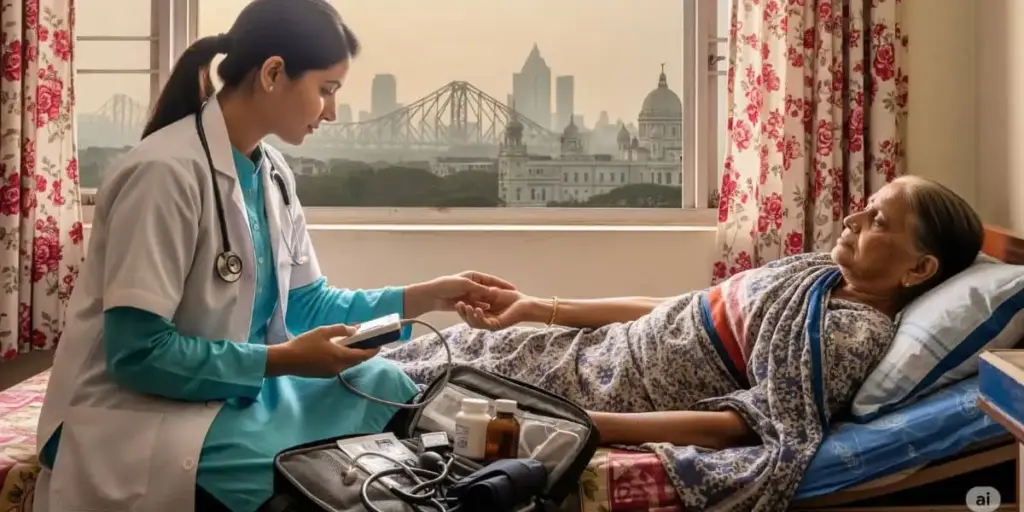Table of Contents
Health care services are not just a necessity—they are the backbone of a healthy and thriving society. From life-saving emergency care to preventive health measures, these services form an integrated system that ensures people receive the right treatment at the right time. In today’s rapidly changing world, with increasing health risks, urban stress, and an ageing population, access to high-quality health care services is more important than ever.
This guide will walk you through the various aspects of health care services—their types, benefits, delivery systems, challenges, innovations, and practical tips on choosing the right care for yourself and your family. We will also back up our claims with credible sources, ensuring you get accurate and trustworthy information.

What Are Health Care Services?
Health care services refer to organized medical, preventive, diagnostic, therapeutic, and rehabilitative services provided to individuals and communities to promote, maintain, monitor, and restore health. These services can be delivered through hospitals, clinics, health centers, and even through home-based care.
They play a critical role in:
- Preventing illnesses before they become severe
- Treating health conditions effectively and efficiently
- Improving the quality of life for patients with chronic diseases
- Reducing the burden on the economy by maintaining a healthier workforce
For a formal definition, the World Health Organization (WHO) provides comprehensive guidelines on how health systems should be structured for optimal outcomes.
Types of Health Care Services
1. Primary Services of Health Care
Primary care is the first point of contact between an individual and the health system. It is usually provided by general practitioners, family doctors, and community clinics.
Key Features of Primary Health Care
- Preventive measures like immunizations and wellness check-ups
- Management of common illnesses such as colds, minor infections, and mild injuries
- Basic diagnostics like blood pressure measurement, sugar tests, and basic lab investigations
- Referrals to specialists when advanced care is needed
Primary care helps reduce the load on hospitals by treating manageable conditions early.
2. Secondary Services of Health Care
Secondary care involves specialized services that are usually provided in hospitals or specialized health centers after a referral from a primary care provider.
Examples of Secondary Health Care Services
- Specialist consultations such as dermatology, gynecology, or cardiology
- Diagnostic imaging, like CT scans, MRIs, and ultrasounds
- Hospital-based treatments for conditions like pneumonia or gallbladder stones
According to CDC research, secondary care forms the bridge between primary services and more complex tertiary services.
3. Tertiary Health Care Services
Tertiary care is highly specialized, often involving cutting-edge technology and expert medical professionals.
Common Examples
- Organ transplants and advanced surgical interventions
- Cancer treatment, including chemotherapy, radiotherapy, and targeted therapy
- Neurosurgical operations for complex brain and spine disorders
These services are generally available at large hospitals and specialized medical institutions.
4. Preventive Services of Health Care
Preventive health care services aim to detect and stop the progression of diseases before they become life-threatening.
Core Areas of Preventive Health Care
- Health screenings for conditions like diabetes, hypertension, and certain cancers
- Vaccinations to protect against infectious diseases
- Nutritional counselling and wellness programs
Research by Harvard Medical School highlights that preventive care significantly reduces long-term health costs and improves life expectancy.
5. Emergency Health Care Services
Emergency services provide immediate intervention in life-threatening situations. They are crucial for preventing fatalities and severe disabilities.
Key Components
- Ambulance services with trained paramedics
- Emergency departments equipped for urgent care
- Trauma centers for accident and injury management
Quick access to emergency health care services often makes the difference between life and death.
6. Rehabilitation Health Care Services
Rehabilitation helps patients recover and regain independence after a serious illness or injury.
Examples of Rehabilitation Services
- Physical therapy for mobility improvement
- Speech therapy for communication restoration
- Occupational therapy for daily activity training
These services are essential for long-term recovery and reintegration into normal life.
7. Palliative and Hospice Care
These services focus on improving the quality of life for people with serious illnesses and providing compassionate support at the end of life.
Why the Services of Health Care Are Important
The impact of health care services extends beyond individual health. They:
- Enhance life expectancy by managing health conditions effectively
- Prevent disease outbreaks through vaccination and awareness
- Support economic stability by maintaining a healthy workforce
- Reduce health disparities by improving access in underserved areas
Key Components of Effective Health Care Services
1. Accessibility
Health care must be available to all, regardless of geography or income level.
2. Affordability
Services must be cost-effective without compromising quality.
3. Quality Care
High standards in diagnosis, treatment, and patient safety ensure better health outcomes.
4. Patient-Centered Approach
Focusing on individual needs and preferences improves satisfaction and recovery rates.
How Health Care Services Are Delivered
Health care services can be delivered through different systems:
- Public health systems are funded by government taxes
- Private hospitals and clinics offering specialized and premium services
- Hybrid systems combining public and private care
- Telemedicine platforms for remote consultations
Challenges in the Services of Health Care in Kolkata
While the sector is advancing rapidly, challenges remain:
- Shortage of qualified medical professionals
- Rising treatment costs
- Inequitable access in rural or remote regions
- Increasing prevalence of lifestyle-related chronic diseases
- Need for wider adoption of digital health solutions
Innovations Transforming Health Care Services
Telemedicine and Remote Care
Patients can now consult doctors from their homes, improving access and convenience.
AI-Driven Diagnostics
Artificial intelligence helps in faster and more accurate detection of diseases.
Wearable Health Devices
These devices track vitals like heart rate, oxygen levels, and sleep patterns.
Electronic Health Records (EHRs)
Digital records ensure better coordination between health care providers.
Role of Technology in Health Care Services
Technology improves the services of health care by:
- Making diagnosis faster and more accurate
- Offering treatment in remote locations
- Streamlining patient data management
- Enabling personalized care through data analysis
How to Choose the Right Services of Health Care in Kolkata
When selecting a provider, consider:
- Accreditation and certifications of the facility
- Experience and specialization of medical staff
- Availability of emergency care
- Patient reviews and feedback
Conclusion
Health care services form the foundation of a healthy society. With evolving technologies, patient-focused care models, and preventive health programs, access to quality services is becoming more achievable. However, challenges like affordability and equal access must be addressed to ensure everyone benefits from advancements in health care.
FAQs
Q1: What are the main categories of health care services?
A: Primary, secondary, tertiary, preventive, emergency, rehabilitation, and palliative care.
Q2: How does preventive care benefit society?
A: It reduces treatment costs, detects diseases early, and improves life expectancy.
Q3: What is the role of technology in modern health care services?
A: It enables remote care, improves diagnosis accuracy, and enhances patient management.
Q4: Why is accessibility important in the services of health care?
A: It ensures everyone receives care regardless of location or financial status.
Q5: What is the difference between primary and secondary care?
A: Primary care is the first contact for basic treatments, while secondary care offers specialized services.
Q6: Are telemedicine consultations reliable?
A: Yes, they are effective for non-emergency cases and reduce travel time for patients.
Q7: How can I find accredited health care services?
A: Check certifications, reviews, and official health department listings.
Q8: Do rehabilitation services cover mental health recovery?
A: Yes, rehabilitation can include psychological therapy and counselling.
Q9: What makes emergency services critical?
A: They provide immediate intervention, often saving lives.
Q10: How can governments improve the services of health care?
A: By increasing funding, expanding rural access, and investing in technology.






